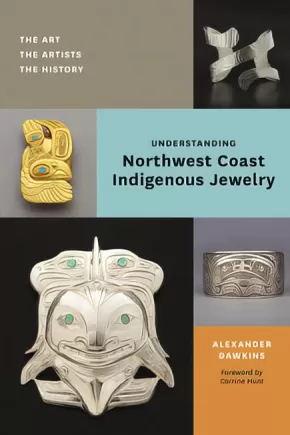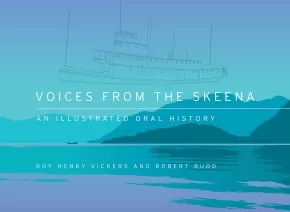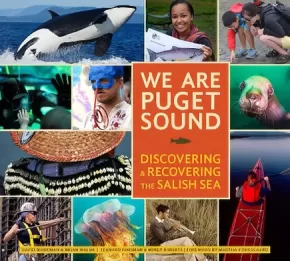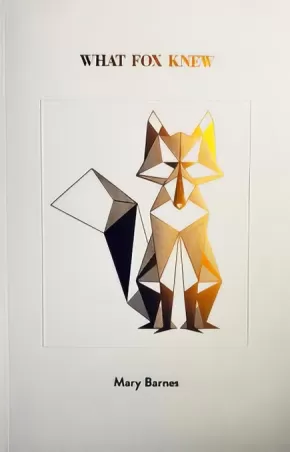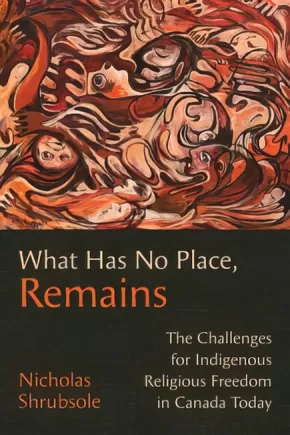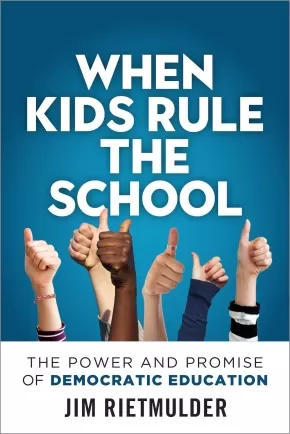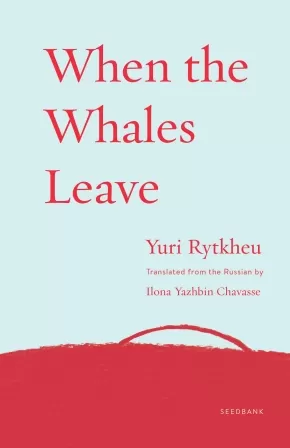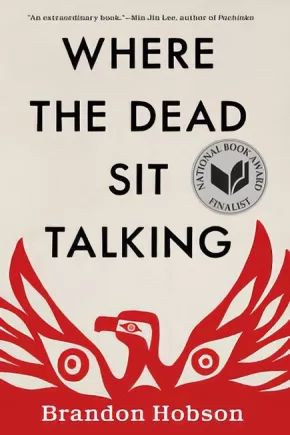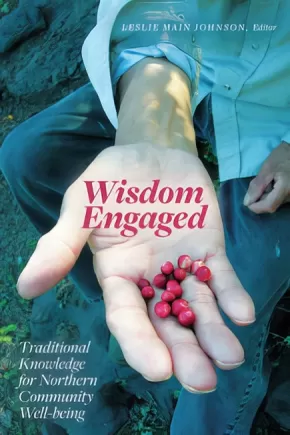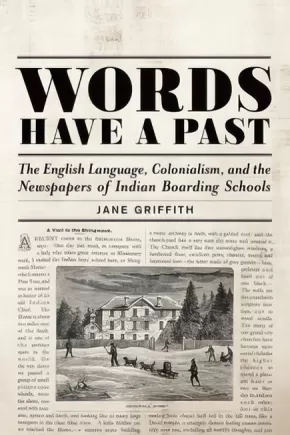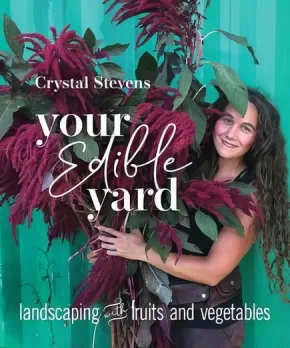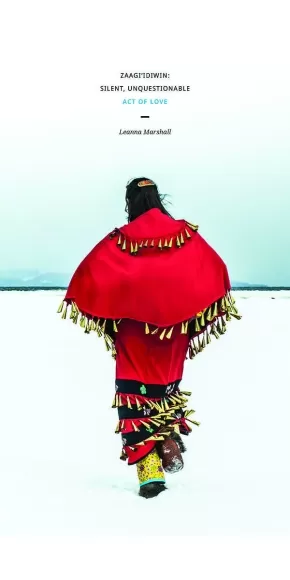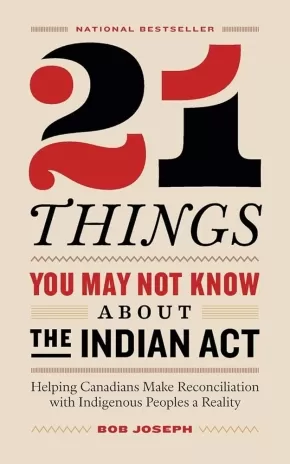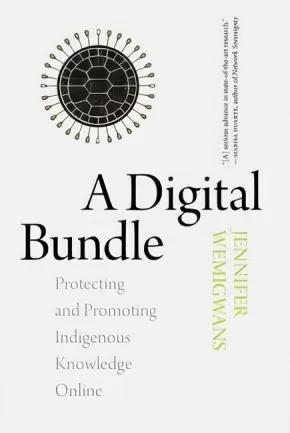
Books
1156
-
1170
of
1928 Results;
Sort By
Go To
of 129
Understanding Northwest Coast Indigenous Jewelry
$24.95
Format:
Paperback
Text Content Territories:
Indigenous American; Indigenous Canadian;
ISBN / Barcode: 9781771642972
Synopsis:
Synopsis:
As beautiful as it is useful, Understanding Northwest Coast Indigenous Jewelry is an invaluable tool for anyone interested in learning about or deepening their understanding of a fascinating craft.
Indigenous hand-engraved jewelry from the Pacific Northwest Coast is among the most distinctive, innovative, and highly sought-after art being produced in North America today. But these artworks are more than just stunning—every bracelet, ring, and pendant is also the product of a fascinating backstory, a specialized set of techniques, and a talented artist.
With a clearly written text, a foreword by award-winning First Nations artist Corrine Hunt, and more than one hundred striking color photographs and sidebars, Understanding Northwest Coast Indigenous Jewelry offers an illuminating look at an exquisite craft and the context in which it is practiced.
Providing a step-by-step overview of various techniques, the book also introduces the specifics of formline design, highlights the traits of the most common animal symbols used, offers tips for identification, and features biographies and works from over fifty of the Coast’s best-known jewelers. Finally, it delves into the history of the art form, from the earliest horn and copper cuff bracelets to cutting-edge contemporary works and everything in between.
Educator Information
Recommended in the Canadian Indigenous Books for Schools 2019-2020 resource list for grades 9 to 12 for Arts Education, English Language Arts, and Social Studies.
Additional Information
192 pages | 6.00" x 9.00"
Voices from the Skeena: An Illustrated Oral History
$36.95
Format:
Hardcover
Text Content Territories:
Indigenous Canadian; First Nations; Gitxsan (Gitksan); Tsimshian (Ts'msysen);
ISBN / Barcode: 9781550178838
Synopsis:
Synopsis:
The Skeena, second longest river in the province, remains an icon of British Columbia’s northwest. Called Xsien (“water of the clouds”) by the Tsimshian and Gitksan, it has always played a vital role in the lives of Indigenous people of the region. Since the 1800s, it has also become home to gold seekers, traders, salmon fishers and other settlers who were drawn by the area’s beauty and abundant natural resources.
Voices from the Skeena takes readers on a journey inspired directly by the people who lived there. Combining forty illustrations with text selected from the pioneer interviews CBC radio producer Imbert Orchard recorded in the 1960s, the book follows the arrival of the Europeans and the introduction of the fur trade to the Omineca gold rush and the building of the Grand Trunk Pacific Railroad.
Open the pages to meet Robert Cunningham, an Anglican missionary who would later become the founder of the thriving Port Essington. Here too is a man called Cataline, a packer for whom no settlement was too remote to reach, and the indominable Sarah Glassey, the first woman to pre-empt land in British Columbia. At the heart of these stories is the river, weaving together a narrative of a people and their culture. Pairing the stories with Roy Henry Vicker’s vibrant art creates a unique and captivating portrait of British Columbia that will appeal to art lovers and history readers alike.
Additional Information
112 pages | 11.00" x 8.00" | 40 colour illustrations
This work has received the Authentic Indigenous Text label because of the interviews/contributions with Indigenous people like Vicky Sims and Chief Jeffrey H. Johnson. It is up to readers to determine if this work is authentic for their purposes.
We Are Puget Sound: Reclaiming a Wilder Salish Sea
$41.95
Format:
Hardcover
Text Content Territories:
Indigenous Canadian; First Nations; Indigenous American; Native American;
ISBN / Barcode: 9781680512588
Synopsis:
Synopsis:
Puget Sound is a magnificent and intricate estuary, the very core of life in Western Washington. Yet it’s also a place of broader significance: rivers rush from the Cascade and Olympic mountains and Canada’s coastal ranges through varied watersheds to feed the Sound, which forms the southern portion of a complex, international ecosystem known as the Salish Sea.
A rich, life-sustaining home shared by two countries, as well as 50-plus Native American Tribes and First Nations, the Salish Sea is also a huge economic engine, with outdoor recreation and commercial shellfish harvesting alone worth $10.2 billion. But this spectacular inland sea is suffering. Pollution and habitat loss, human population growth, ocean acidification, climate change, and toxins from wastewater and storm runoff present formidable challenges.
We Are Puget Sound amplifies the voices and ideas behind saving Puget Sound, and it will help engage and inspire citizens around the region to join together to preserve its ecosystem and the livelihoods that depend on it.
Additional Information
224 pages | 10.00" x 9.00" | 125 colour photographs
Wënchikàneit Visions
$19.00
Format:
Paperback
Text Content Territories:
Indigenous Canadian; First Nations; Anishinaabeg; Ojibway;
Grade Levels: University/College;
ISBN / Barcode: 9780887536045
Synopsis:
Synopsis:
Wënchikàneit Visions is a collection of essays that explores the connection to place and history through the lens of absence, forgetfulness, and abandonment. The pieces and collection as whole turn to often overlooked physical spaces of the region around Waawiiyaatanong, and consider their central role in both its past and its future. The pieces are organized as visions occurring in regards to the moons from September (Hunters Moon) until February (Deep Snow Moon) and utilize traditional teachings and myths to contemplate these forgotten or abandoned places.
Additional Information
70 pages | 6.00" x 9.00"
Note: cover image may differ.
What Fox Knew
$19.95
Format:
Paperback
Text Content Territories:
Indigenous Canadian; First Nations; Anishinaabeg; Ojibway;
Grade Levels: University/College;
ISBN / Barcode: 9781988168203
Synopsis:
Synopsis:
"His voice was as thick as pine resin when he began to read and as the words travelled down my spine."
Mary Barnes has identified beauty in subtlety. What Fox Knew captures our gentle world in rich poems that calm and awaken. Amid landscape and truth, the quiet world we take for granted is revealed anew with tempered grace. Bringing her Ojibwe roots to the fore, the poet has constructed a first collection that settles on masterful.
Reviews
"What Fox Knew is a beautiful collection of poems that lead us to reflect on the essential spaces of beauty, justice, love, home and nation. Mary Barnes is the poet whose work I've been waiting to read; I had no idea how much until I read these poems. These are not quick poems; they are not desperate, or rushed. Barnes' poems are, to quote her, "thick as resin" and also gorgeously clear as amber in the light. --Juliane Okot Bitek
Additional Information
136 pages | 5.00" x 7.50"
What Has No Place, Remains: The Challenges for Indigenous Religious Freedom in Canada Today
$35.95
Format:
Paperback
Text Content Territories:
Indigenous Canadian;
Grade Levels: University/College;
ISBN / Barcode: 9781487523442
Synopsis:
Synopsis:
The desire to erase the religions of Indigenous Peoples is an ideological fixture of the colonial project that marked the first century of Canada’s nationhood. While the ban on certain Indigenous religious practices was lifted after the Second World War, it was not until 1982 that Canada recognized Aboriginal rights, constitutionally protecting the diverse cultures of Indigenous Peoples. As former prime minister Stephen Harper stated in Canada’s apology for Indian residential schools, the desire to destroy Indigenous cultures, including religions, has no place in Canada today. And yet Indigenous religions continue to remain under threat.
Framed through a postcolonial lens, What Has No Place, Remains analyses state actions, responses, and decisions on matters of Indigenous religious freedom. The book is particularly concerned with legal cases, such as Ktunaxa Nation v. British Columbia (2017), but also draws on political negotiations, such as those at Voisey’s Bay, and standoffs, such as the one at Gustafsen Lake, to generate a more comprehensive picture of the challenges for Indigenous religious freedom beyond Canada’s courts. With particular attention to cosmologically significant space, this book provides the first comprehensive assessment of the conceptual, cultural, political, social, and legal reasons why religious freedom for Indigenous Peoples is currently an impossibility in Canada.
Reviews
"There is no book that takes on the ambitious task that What Has No Place, Remains does, especially in the context of Canada and the Indigenous practices and beliefs linking Indigenous People to the land." - Michael McNally, Department of Religion, Carleton College
"Working at the intersection of religious, political, legal, and Indigenous studies, this book’s multi-disciplinary framework yields numerous insights, both analytically and prescriptively." - Greg Johnson, Department of Religious Studies, University of Colorado Boulder
Educator Information
Table of Contents
Abbreviations
Preface
A Comment on Terminology
Introduction: Colonialism and the Challenges for Religious Freedom
1. The Depth of Religious Freedom
2. Secularization, Dispossession and Forced Deprivatization
3. Religions Plus? Competing Frameworks of Indigenous Religious Freedom
4. Dealing with Diversity Poorly and the Gustafsen Lake Standoff
5. The Duty to Consult and Accommodate
6. The Potential and Limits of International Mechanisms of Redress
Conclusion: Challenges for Reconciliation
Notes
Bibliography
Additional Information
280 pages | 5.90" x 9.00"
When Kids Rule the School: The Power and Promise of Democratic Education
$19.99
Format:
Paperback
ISBN / Barcode: 9780865719040
Synopsis:
Synopsis:
How self-directed democratic schooling builds fulfilling lives and can lead the way back to a civilized society.
Education is ripe for democratic disruption. Students in most schools are denied fundamental social ideals such as personal freedom, public government, rule of law, and free enterprise. In our increasingly authoritarian post-truth world, self-directed democratic schooling offers a timely alternative: educating children in civilized society and showing that self-motivation outperforms coercion in its power to educate and fulfill.
When Kids Rule the School is the first comprehensive guide to democratic schooling, where kids practice life in a self-governed society—empowered as voters, bound by laws, challenged by choice, supported by community, and driven by nature. Through heartwarming stories and hard-headed details, this book covers:
- Democratic schooling philosophy, theory, and practice
- School governance by students and staff together
- Student self-direction and day-to-day life
- Deep play, cognitive development, and critical thinking
- Why democratic schooling is morally right and effective
- Model bylaws and guidance for starting a democratic school.
Created for educators, parents, and scholars, When Kids Rule the School will immerse you, heart and mind, in a promising new approach to education, and stretch your thinking about what school can be.
Educator Information
When Kids Rule the School lays out the theory and practice of self-directed democratic schooling.
Written by the co-founder of The Circle School, open since 1984.
Self-directed democratic schooling results in higher rates of college attendance, more undergraduate and graduate degrees, healthy relationships with authority, and unflinching self-responsibility.
Intended for educators, parents (especially homeschoolers and unschoolers), and scholars of education.
Additional Information
288 pages | 6.00" x 9.00" | 10 illustrations
When the Whales Leave
$21.50
Format:
Paperback
Text Content Territories:
Indigenous Siberian; Chukchi (Chukchee);
Grade Levels: University/College;
ISBN / Barcode: 9781571311313
Synopsis:
Synopsis:
“Arguably the foremost writer to emerge from the minority peoples of Russia’s far north.” —New York Review of Books
Nau cannot remember a time when she was not one with the world around her: with the fast breeze, the green grass, the high clouds, and the endless blue sky above the Shingled Spit. But her greatest joy is to visit the sea, where whales gather every morning to gaily spout rainbows.
Then, one day, she finds a man in the mist where a whale should be: Reu, who has taken human form out of his Great Love for her. Together these first humans become parents to two whales, and then to mankind. Even after Reu dies, Nau continues on, sharing her story of brotherhood between the two species. But as these origins grow more distant, the old woman’s tales are subsumed into myth—and her descendants turn increasingly bent on parading their dominance over the natural world.
Buoyantly translated into English for the first time by Ilona Yazhbin Chavasse, this new entry in the Seedbank series is at once a vibrant retelling of the origin story of the Chukchi, a timely parable about the destructive power of human ego—and another unforgettable work of fiction from Yuri Rytkheu, “arguably the foremost writer to emerge from the minority peoples of Russia’s far north” (New York Review of Books).
Reviews
“We have so little intimate information about these Arctic people, and the writer’s deep emotional attachment to this landscape of ice (today melting away under global warming forces) makes every sentence seem a poetic revelation.”—Annie Proulx
“Rytkheu immerses his readers in the fantastical landscapes of the Arctic circle, and does so without breaking a sweat. . . . His elegant, unforced descriptive writing can whip us across leagues of tundra and thread the jagged icebergs studding hyperborean seas, but when the blizzards hit and the characters are trapped in their huts, we’re snowbound there with them under the whale-oil lamp, chewing walrus and hoping for respite.”—Bookslut
“Thousands of books have been written about the Arctic aborigines by intruders from the south. Rytkheu has turned the skin inside out and written about the way the Arctic people view outsiders. A Chukchi himself, [he] writes with passion, strength, and beauty of a world we others have never understood.”—Farley Mowat
Additional Information
136 pages | 5.50" x 8.50" | Translated by Ilona Yazhbin Chavasse
Where the Dead Sit Talking
$24.00
Format:
Paperback
Text Content Territories:
Indigenous American; Native American; Cherokee; Cherokee Nation (Cherokee Nation of Oklahoma);
ISBN / Barcode: 9781641290173
Synopsis:
Synopsis:
Set in rural Oklahoma during the late 1980s, Where the Dead Sit Talking is a startling, authentically voiced and lyrically written Native American coming-of-age story.
With his single mother in jail, Sequoyah, a fifteen-year-old Cherokee boy, is placed in foster care with the Troutt family. Literally and figuratively scarred by his mother’s years of substance abuse, Sequoyah keeps mostly to himself, living with his emotions pressed deep below the surface. At least until he meets seventeen-year-old Rosemary, a troubled artist who also lives with the family.
Sequoyah and Rosemary bond over their shared Native American background and tumultuous paths through the foster care system, but as Sequoyah’s feelings toward Rosemary deepen, the precariousness of their lives and the scars of their pasts threaten to undo them both.
Awards
- A Kirkus Reviews Best Book of 2018
- 2019 In the Margins Book Award Top Fiction Novel
Reviews
"An extraordinary book." —NPR's Code Switch
"A strange and powerful Native American Bildungsroman . . . this novel breathes with a dark, pulsing life of its own." —The Tulsa Voice
" This is a dark story that depicts the loneliness and pain of unwanted children and the foster care system where they end up . . . authentic and humane. " — The Oklahoman
"A powerful testament to one young Native American’s will to survive his lonely existence. Sequoyah’s community and experience is one we all need to know, and Hobson delivers the young man’s story in a deeply profound narrative." —KMUW Wichita Public Radio
"I was really struck by the intelligence of the book, as well as the significance of the story that he's telling, about what it's like to be a modern Indigenous person in this country, as a Native American, and to be in the foster care system. I was very struck by the plot of it—it's very well written, it's very propulsive, it's very readable for literary fiction, and I would recommend it heartily to book clubs." —Min Jin Lee, author of Pachinko
"Dreamlike prose . . . Where the Dead Sit Talking is an exploration of whether it’s possible for a person to heal when all the world sees is a battlefield of scars. " — San Diego CityBeat
"The latest from Hobson is a smart, dark novel of adolescence, death, and rural secrets set in late-1980s Oklahoma. Hobson’s narrative control is stunning, carrying the reader through scenes and timelines with verbal grace and sparse detail. Far more than a mere coming-of-age story, this is a remarkable and moving novel ." — Publishers Weekly, Starred Review
"A masterly tale of life and death, hopes and fears, secrets and lies." —Kirkus Reviews, Starred Review
"Hobson's eloquent prose and storyline will keep literary and general fiction readers turning pages. Its teen protagonists offer interest for young adults." —Library Journal
"[A] poignant and disturbing coming-of-age story . . . Hobson presents a painfully visceral drama about the overlooked lives of those struggling on the periphery of mainstream society." —Booklist
"Where the Dead Sit Talking is a sensitive and searching exploration of a youth forged in turbulence, in the endless aftermath of displacement and loss. Sequoyah’s voice is powerfully singular—both wounded and wounding—and this novel is a thrilling confirmation of Brandon Hobson’s immense gifts on the page.” —Laura van den Berg, author of Find Me
Additional Information
5.50" x 8.25"
Wisdom Engaged: Traditional Knowledge for Northern Community Well-being
$43.99
Editors:
Format:
Paperback
Text Content Territories:
Indigenous Canadian;
Grade Levels: University/College;
ISBN / Barcode: 9781772124101
Synopsis:
Synopsis:
Wisdom Engaged demonstrates how traditional knowledge, Indigenous approaches to healing, and the insights of Western bio-medicine can complement each other when all voices are heard in a collaborative effort to address changes to Indigenous communities’ well-being. In this collection, voices of Elders, healers, physicians, and scholars are gathered in an attempt to find viable ways to move forward while facing new challenges. Bringing these varied voices together provides a critical conversation about the nature of medicine; a demonstration of ethical commitment; and an example of successful community relationship building.
Contributors: Alestine Andre, Janelle Marie Baker, Robert Beaulieu, Della Cheney, Mida Donnessey, Mabel English, Christopher Fletcher, Fort McKay Berry Group, Annie B. Gordon, Celina Harpe, Leslie Main Johnson, Thea Luig, Art Mathews, Linda G. McDonald, Ruby E. Morgan, Keiichi Omura, Evelyn Storr (Inuvialuit Regional Corporation), Mary Teya, Nancy J. Turner, Walter Vanast, Darlene Vegh
Educator Information
Keywords: Traditional Knowledge, Well-Being, Health
Subjects and Course Areas: Social Science, History, Indigenous Studies, Anthropology, Health and Medicine
Additional Information
|
Authenticity Note: This book has received the Authentic Indigenous Text label because of its contributions from Indigenous peoples. Non-Indigenous contributors are also included.
Words Have a Past: The English Language, Colonialism, and the Newspapers of Indian Boarding Schools
$30.95
Format:
Paperback
Text Content Territories:
Indigenous American; Indigenous Canadian;
Grade Levels: 12; University/College;
ISBN / Barcode: 9781487521554
Synopsis:
Synopsis:
For nearly 100 years, Indian boarding schools in Canada and the US produced newspapers read by white settlers, government officials, and Indigenous parents. These newspapers were used as a settler colonial tool, yet within these tightly controlled narratives there also existed sites of resistance. This book traces colonial narratives of language, time, and place from the nineteenth-century to the present day, post-Truth and Reconciliation Commission.
Educator Information
1. Bury the Lede: Introduction
2. Printer’s Devil: The Trade of Newspapers
3. Indigenous Languages Did Not Disappear: English Language Instruction
4. "Getting Indian Words": Representations of Indigenous Languages
5. Ahead by a Century: Time on Paper
6. Anachronism: Reading the Nineteenth Century Today
7. Layout: Space, Place, and Land
8. Concluding Thoughts
Additional Information
256 pages | 6.00" x 9.00"
Your Edible Yard: Landscaping with Fruits and Vegetables
$39.99
Format:
Paperback
ISBN / Barcode: 9780865719224
Synopsis:
Synopsis:
Unleash the potential of your yard by transforming it into a beautiful and vibrant space offering a continuous supply of food
Journey into the good food movement by unleashing the potential of your yard, transforming it into a beautiful and vibrant space that offers a continuous supply of food.
Using dozens of beautiful color photographs and watercolor planting charts, infographics, and landscaping designs, Your Edible Yard is the comprehensive how-to guide you need to turn your yard into a bountiful feast.
It features:
- Practical gardening methods and maintenance from weeding to wintering, including foodscaping, container gardening, and saving seeds
- Permaculture principles including soil building techniques, garden preparation, raised beds, and natural/non-toxic DIY pesticide alternatives
- How to integrate culinary and medicinal herbs, edible flowers, mushrooms, fruits, vegetables, and wild edibles
- Gardening resources: where to go for help, buy seeds, and source supplies on a budget
- Instructions on preserving, fermenting, freezing, drying, and making simple medicines
- General tips, such as how to find loopholes in laws preventing edible front yards.
Whether you're a beginner or experienced gardener in the city, the suburbs, or the country, this manual is the A-Z guide for how to make use of the space you have, highlighting the colorful and abundant array that edible landscapes promise.
Additional Information
208 pages | 7.50" x 9.00"
Zaagi'idiwin: Silent, Unquestionable Act of Love
$20.00
Format:
Paperback
Text Content Territories:
Indigenous Canadian; First Nations; Anishinaabeg; Oji-Cree;
Grade Levels: University/College;
ISBN / Barcode: 9780994036124
Synopsis:
Synopsis:
Zaagi'idiwin: Silent, Unquestionable Act of Love, creates an intersection where viewers meet to understand and explore the essence of relationships, the meaning of connection/disconnection, and the pain of loss. Through the making and documentation of jingle dresses, Marshall explores the deeply personal stories that have shaped her perception of the complexities of her family history in the context of Canadian history. The social inequities, resistance, and sorrow communicated in this body of work serve as a springboard to examine the act of compassion and forgiveness, which ultimately helps to move forward to a new and more affirmative place of being.
Additional Information
28 pages | 5.25" x 10.50"
21 Things You May Not Know About the Indian Act
$21.00
Format:
Paperback
Text Content Territories:
Indigenous Canadian;
ISBN / Barcode: 9780995266520
Synopsis:
Synopsis:
Based on a viral article, 21 Things You May Not Know About the Indian Act is the essential guide to understanding the legal document and its repercussion on generations of Indigenous Peoples, written by a leading cultural sensitivity trainer.
Since its creation in 1876, the Indian Act has shaped, controlled, and constrained the lives and opportunities of Indigenous Peoples, and is at the root of many enduring stereotypes. Bob Joseph’s book comes at a key time in the reconciliation process, when awareness from both Indigenous and non-Indigenous communities is at a crescendo. Joseph explains how Indigenous Peoples can step out from under the Indian Act and return to self-government, self-determination, and self-reliance—and why doing so would result in a better country for every Canadian. He dissects the complex issues around truth and reconciliation, and clearly demonstrates why learning about the Indian Act’s cruel, enduring legacy is essential for the country to move toward true reconciliation.
Reviews
"Increasing Canadians' knowledge about the terrible foundation this country has been built on is a critical part of reconciliation. Bob Joseph has highlighted some of the unbelievable provisions of the Indian Act and how they have impacted First Nations in Canada and gives a brief overview of what we may replace it with going forward. His book provides helpful context to the dialogue that needs to take place in Canada." — Kim Baird, O.C., O. B. C.; Owner, Kim Baird Strategic Consulting; Member of the Tsawwassen First Nation; Negotiator of the Tsawwassen First Nation Treaty
"From declaring cultural ceremonies illegal, to prohibiting pool hall owners from granting Indigenous people entrance, from forbidding the speaking of Indigenous languages, to the devastating policy that created residential schools, Bob Joseph reveals the hold this paternalistic act, with its roots in the 1800s, still has on the lives of Indigenous people in Canada in the 21st century. This straightforward book is an invaluable resource. There is much for non-Indigenous people to learn and to do. But equally important, there is much to unlearn and to undo. The time is right for this book. Thank you, Bob Joseph. Gilakasla." — Shelagh Rogers, O.C.; Truth and Reconciliation Commission of Canada Honourary Witness
"Bob’s ability to navigate the complex history of the Indian Act is a wonder to behold. He provides depth and knowledge for Indigenous and non-Indigenous scholars alike. Whether you are an Indigenous scholar or a neophyte, his articulate, insightful and comprehensive analysis on the history of the Indian Act provides a sound understanding on the present narrative of Indigenous peoples in Canada. By way of the Indian Act, this book provides an excellent analysis of the ongoing relationship and predicament between provincial and federal governments and Indigenous peoples in the 21st century." — JP Gladu, President and CEO of the Canadian Council for Aboriginal Business
Educator Information
Recommended in the Canadian Indigenous Books for Schools 2019-2020 resource list as being useful for grades 4-12 and as a teacher resource in these subject areas: English Language Arts and Social Studies.
Additional Information
160 pages | 5.22" x 8.05"
A Digital Bundle: Protecting and Promoting Indigenous Knowledge Online
$29.95
Format:
Paperback
Text Content Territories:
Indigenous Canadian;
Grade Levels: University/College;
ISBN / Barcode: 9780889775510
Synopsis:
Synopsis:
An essential contribution to Internet activism and a must read for Indigenous educators, A Digital Bundle frames digital technology as an important tool for self-determination and idea sharing, ultimately contributing to Indigenous resurgence and nation building.
By defining Indigenous Knowledge online in terms of “digital bundles,” Jennifer Wemigwans elevates both cultural protocol and cultural responsibilities, grounds online projects within Indigenous philosophical paradigms, and highlights new possibilities for both the Internet and Indigenous communities.
Reviews
"This must-read book based on extensive research, dialogue, and consultation with Indigenous Elders, leaders, artists, and academics helps to address the new risks, ethical questions, and challenges for how Indigenous Knowledge can be accessed, appropriately used, published, and transformed using multiple communication and digital forms. It offers the protocols, stories, advice, practices, and wisdom from Indigenous Knowledge holders to help address the challenges and questions about how Indigenous Knowledge can live now and in the future in its divergent forms with new forms of technology. " — Marie Battiste, author of Decolonizing Education and founder of the Aboriginal Education Research Centre, University of Saskatchewan
"An invaluable case-study in how to ethically write and conduct a research project in Indigenous studies. .. this book is a must-read for any researcher writing on Indigenous topics. " —Transmotion
"A necessary intervention into the conversations and classifications of the digital age happening all too often without Indigenous perspective or contribution. " —Journal of Native Studies
"[A] welcome intervention into discussions of the digital age, where the rich possibilities and ethical practices coming from Indigenous scholars and cultural activists such as Wemigwans are sorely needed. This important new book is a kind of guide for scholars, activists, media makers, and visionaries as to how we might collectively imagine Indigenous cultural futures with mindful use of digital technologies across the globe. " — Faye Ginsburg, director of the Center for Media, Culture and History, New York University
Additional Information
224 pages | 6.00" x 9.00"
Sort By
Go To
of 129

